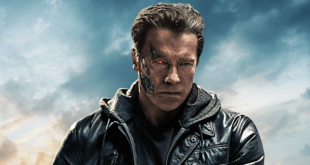The video game industry gathered in downtown Los Angeles this past week for the annual deluge of announcements, trailers and reveals known as E3 Here are five of our biggest takeaways from this year’s convention.
The connection between Hollywood and video games is getting stronger.
As the video game industry (and the technology behind it) has continued to grow, Hollywood’s interest grows with it.
In Ubisoft’s conference alone, they offered another look at the upcoming “Assassin’s Creed” film starring Michael Fassbender, hinted that they still plan on turning their growing “Watch Dogs” franchise into a movie, had “Star Trek” alumni playing the new cooperative virtual reality game “Star Trek: Bridge Crew” and brought Trey Parker and Matt Stone, the creators of “South Park,” onstage to demo their new game “South Park: The Fractured But Whole.”
At the Sony conference, Hideo Kojima’s new game “Death Stranding” was revealed to star “The Walking Dead’s” Norman Reedus, a partnership that managed to weather Kojima’s tumultuous split with Konami.
VR won’t be a fad.
When word started spreading that VR was headed to consoles, a lot worried that it would have the same tacked-on feel that motion controls had and eventually go the way of the buffalo. This year’s E3, more than any other, put those worries to bed.
Microsoft is building a whole new monster console, tentatively called Project Scorpio, with a heavy focus on 4K video and VR optimization. Sony revealed the PSVR would drop Oct. 13 for $399. They followed it by showing an impressive lineup include a VR mission for “Star Wars Battlefront,” an exclusive “Batman Arkham VR” experience, and VR integration with the upcoming “Resident Evil 7.”
Ubisoft brought Palmer Luckey, the creator of the Oculus Rift, onstage to help demo one of the VR games they are developing.
VR games are difficult to demo.
Despite people’s excitement for VR growing, showing them off at shows like E3 continues to be a challenge. So much of what goes into these games is actually putting on the headset and playing, yet most people just watch footage on a flat screen and take the word of the people onstage that the experience is unique and fun.
Not to mention that a lot of these “games” are coined as experiences, which by definition you really have to just get your hands on it to understand what it’s all about.
Console lifespan is shrinking…kinda.
Rumors spread like wildfire leading up to the convention about new, souped up consoles from both Microsoft and Sony. Project Scorpio (Microsoft) and Neo (Sony) were said to leave the current Xbox One and PlayStation 4 in the dust while still stressing the fact that they were considered Xbox 1.5 and PlayStation 4.5.
While new SKUs for current generation consoles has always been a thing, this has a feel of being completely different. Think iPhone release schedule (i.e. 6 followed by 6s) where consoles will get sizable and dramatic upgrades much earlier than in previous generations.
E3 itself is changing.
For a long time, E3 was the conference to beat and it was nearly impossible to do so. Now, as other events like PAX and Gamescom grow, E3 is finding itself in a bit of a transitional phase.
These transitions began last year when the convention was opened up to a limited number of the general public, while at the same time Bethesda decided to have its own press conference the day before the show started. This year EA followed suit, dropping it’s usually Monday press conference in lieu of EA Live, a community-based event that started with a Sunday press conference as well and ran in tandem through the week with E3. Publishers like Activision Blizzard also opted out of having booth space at this years convention.
Don’t be surprised if changes are made before the convention comes back around next year, specifically when it comes to opening it up even more to the gaming community.



